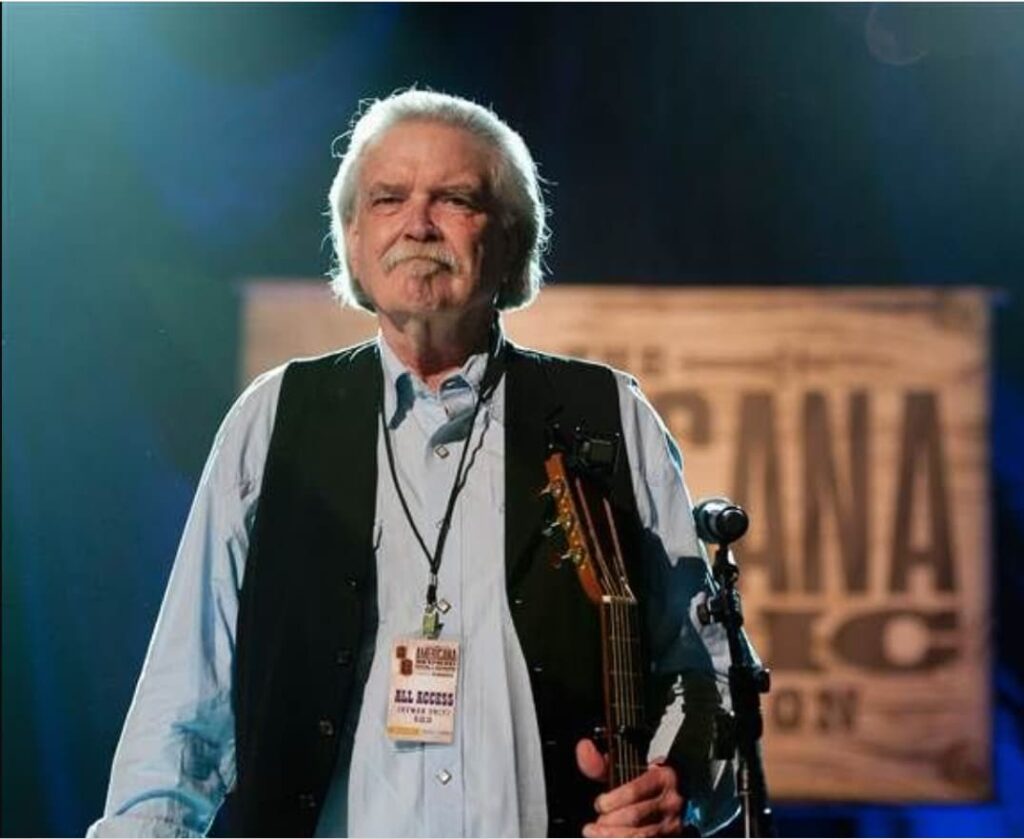
The Last Train Out of Monahans: A Requiem for the Texas Wildcatter
A tender, poetic elegy celebrating an unlikely, formative friendship between a young boy and his grandmother’s aging, hard-drinking beau.
There are certain songs that don’t just occupy space on a record; they inhabit a landscape. They smell of dust, cheap whiskey, and sun-baked railroad ties. “Desperados Waiting For A Train,” penned by the legendary Texas troubadour Guy Clark, is such a song—a towering masterwork of American songwriting that transcends genre to become a universal statement on mentorship, mortality, and the vast, silent poetry of West Texas. For listeners of a certain age, those who’ve watched their own heroes and mentors take that final, inevitable journey, this song hits with a profound and reflective ache.
While the song is the signature piece of Guy Clark, its most significant commercial success belongs to the country supergroup, The Highwaymen—the formidable quartet of Johnny Cash, Waylon Jennings, Willie Nelson, and Kris Kristofferson. Their powerful, four-part harmony rendition, released in 1985 as the second single from their debut album, Highwayman, found immediate resonance with the mainstream country audience. This iconic cover version peaked at Number 15 on the Billboard Hot Country Singles & Tracks chart, firmly cementing the song’s place in the popular imagination.
However, the essence of the song lies in Guy Clark’s original, raw-nerved performance on his 1975 debut album, Old No. 1. Though that album did not yield a major chart hit for Clark himself, it introduced the world to the vivid, autobiographical story behind this masterpiece.
The song is a deeply personal tribute to Jack Prigg, the boyfriend of Clark’s grandmother, who boarded at her hotel in Monahans, Texas. Jack was a “wildcatter,” a brave and reckless soul who gambled everything on drilling for oil. To a young Guy Clark, Jack was more than just a tenant; he was a surrogate grandfather and a roguish idol—an “old school man of the world” whose lessons were imparted through life, not lectures. The lyrics are a remarkable act of remembrance, detailing real, tangible memories: “He taught me how to drive his car when he was too drunk to / And he’d wink and give me money for the girls.” The honesty of that imagery—the Green Frog Cafe, the dominoes, the old men “Lying ’bout their lives while they played”—paints a picture of hard-won wisdom and fading glory.
The metaphor in the title, “Desperados Waiting For A Train,” is the heart of the matter. It beautifully captures the shared sense of being adrift, of waiting for the next big score or the next passage, that bonded the young boy and the aging man. They were two outsiders, looking down the same desolate track of life.
The song reaches its devastating emotional peak in the final verses, where the boy returns to find the old man diminished, fragile, and close to death: “Now he’s a picture on the wall / And he’s a story in the hall / And he’s a name on a glass in the kitchen.” This is not just a song about loss, but about the transition of a flesh-and-blood hero into a cherished memory. It’s a poignant reflection on how the people who shape us eventually depart, leaving behind only the stories—the songs—to keep their spirit alive. The enduring power of “Desperados Waiting For A Train” is its ability to transform a deeply specific personal memory into a timeless, universally understood meditation on love, mentorship, and the ultimate passing of the torch.